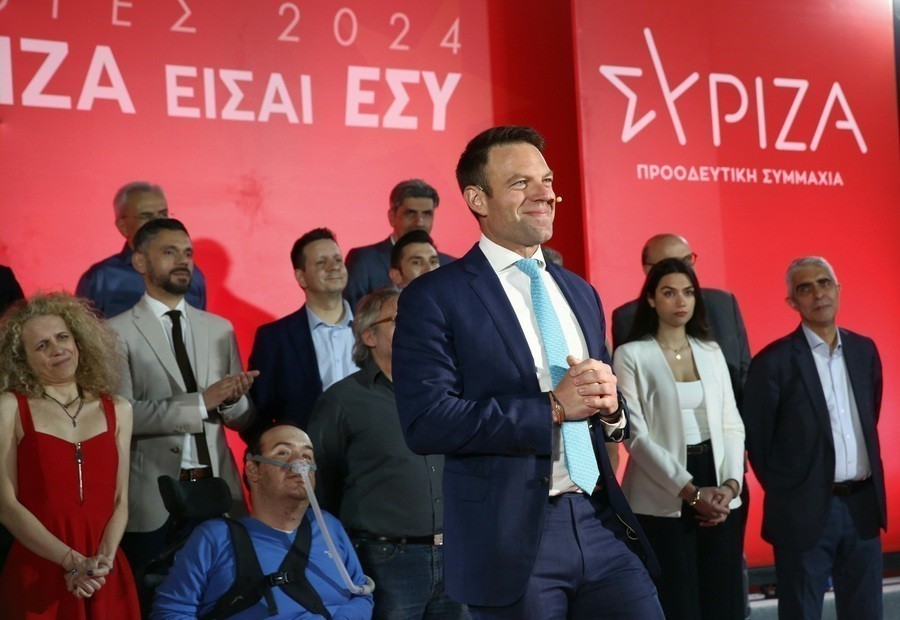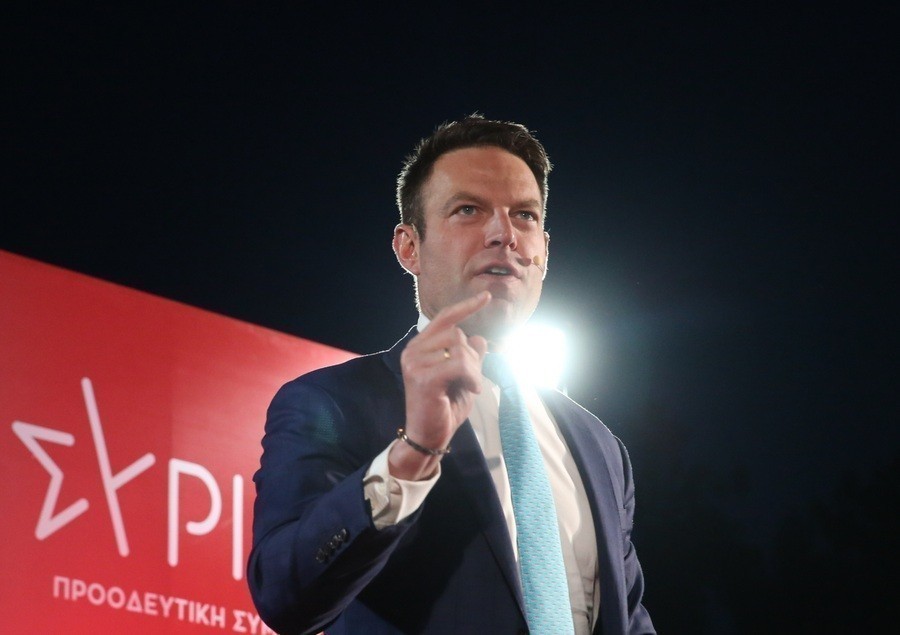
#Tags:
Αλέξης ΤσίπραςNew DemocracyGreek Prime Ministermain oppositionEU electionsEuroelectionsProgressive AllianceThe choice is between “the Greece of the elite, or the Greece of the many”, Tsipras states
Voters in Greece, like those in Europe, faced a clear dilemma, Prime Minister Alexis Tsipras said on Thursday, during a pre-election rally in the southern Greek city of Kalamata. In fact, he added, the choices in Greece were even more stark.
“[Main opposition New Democracy’s] programme now clearly reflects the harshest and most vindictive neoliberalism. The citizens will be called on to choose [between]: dismissals or staffing of the social state, tax immunity for the rich or an easing of the burdens on the many, a Pinochet-style pension system or a fair and sustainable public pension system, the collapse of wages and labour deregulation or an increase in wages and protection of labour, the ‘presents’ to the oligarchy or a strategic plan for growth and a new production model for the country,” Tsipras said.
“In other words, between the Greece of the elite or the Greece of the many,” he added.
“The answer on who will govern this country will be given by the people and only by the people, not the propaganda mongers of the oligarchy’s mainstream news,” Tsipras said, addressing the crowd.
He went on to accuse main opposition New Democracy leader Kyriakos Mitsotakis of being “one of the most fervent supporters of the alignment with the far-right,” and “of the man that symbolises this plan,” which he identified as the European People’s Party (EPP) candidate for European Commission president Manfred Weber, who he said “had wanted to punish Greeks for rebelling and is now Mitsotakis’ closest friend.”
The Europe envisioned by Weber and the far right was not the only way forward, Tsipras said, noting that there was also the Europe of solidarity, shared responsibility, social rights and equality, the kind of Europe that took action to protect the environment and individual freedoms.
“The progressive Europe that is born through a joining of forces by all those that don’t accept a return to the dark days of nationalist strife and competition,” he added.
The prime minister also commented on the Novartis case and the reactions of those involved, noting that the crimes against the country, the collapse of pension funds and ruin of schools and hospitals could not be forgotten or statute-barred. “We cannot write off the political responsibility of those that brought Greece to the verge of bankruptcy,” he said.
‘A broad popular front.. the Progressive Alliance, is taking shape in every city’
Addressing enthusiastic crowds in Kalamata, the prime minister said that a broad popular front is now coming forward throughout Greece, which is “the Progressive Alliance that is taking shape in every city, every region, a majority and victorious tide that is creating a barricade against the rise of the far-right, and against all those who looted and put Greece in debt.”
The prime minister said that four years ago people in two consecutive national elections gave SYRIZA a mandate to start the difficult struggle of getting the country “out of the deep pit of the memorandums, to protect the many and to change Greece,” said Tsipras.
Tsipras said that the Greek people had unjustly paid for a crisis caused by the mistakes and omissions of the country’s elite over the past forty years.
‘We promised…to exit the memoranda with society still standing and we achieved that’
“We joined forces, we fought and we achieved our goal, Greece today is not the Greece of default, Greece today is no longer the Greece of the memoranda…Greece today is no longer the Greece of the IMF. In September 2015 we made a promise to the Greek people, to take the country out of the memoranda with society still standing, and we achieved that,” he said.
The prime minister also said that his government took on a country with four million people below the poverty line, 1.5 million people unemployed, and 65 billion euros worth of austerity measures, as this was “left behind by Samaras and Venizelos, who had the plan ready and who provocatively sided with the creditors,” he said.
Tsipras went on to outline the government’s work over the last four years, saying that the results are visible today.
He said that his government dealt with the overall crisis by putting more than three billion euros into welfare policies, and programmes dealing with the humanitarian crisis and policies to protect children.
Tsipras said that state hospitals were reinforced with some 18.000 staff along with the overhaul of the national health system, giving some 2.5 million uninsured citizens access to healthcare.
The provision of rent benefits for some 600.000 citizens and the legislation of home help for the weak and the sick were also among his top welfare achievements.
The government had also succeeded in providing support for state schools and education, providing extra staff and teachers and putting an end to the “shameful practice of photocopies instead of real books,” Tsipras said, as well as providing school services for children with special needs.
The restructuring of insurance funds led to some 600.000 pensioners seeing a raise since the start of 2019, while collective labour agreements were also brought back, while a hike in the minimum wage by 11 pct happened at the same time as scrapping the sub-minimum wage for the under 25-year olds.
Reducing unemployment by nine percentage points and creating some 350,000 new jobs was highlighted by Tsipras, who here added that after all this effort, the country returned to growth and saw record foreign direct investments.
Concluding his speech, Tsipras said that Greece “needs the young generation, those who will vote for the first time, the 18-year-olds, the 20-year olds, they have to realise that they have a powerful weapon in their hand,” said Tsipras referring to the power of voting.
Tsipras finally said that some people cannot accept that he became prime minister at the age of 40, and that some call him ironically a ‘squatter’ and a ‘high-school council president’, “but I trust the new generation, I trust its decisions, I trust the power of the people that insist on dreaming,” concluded the prime minister.
Source: ANA-MPA
The quality of public administration affects quality of democracy and development, Dragasakis says

